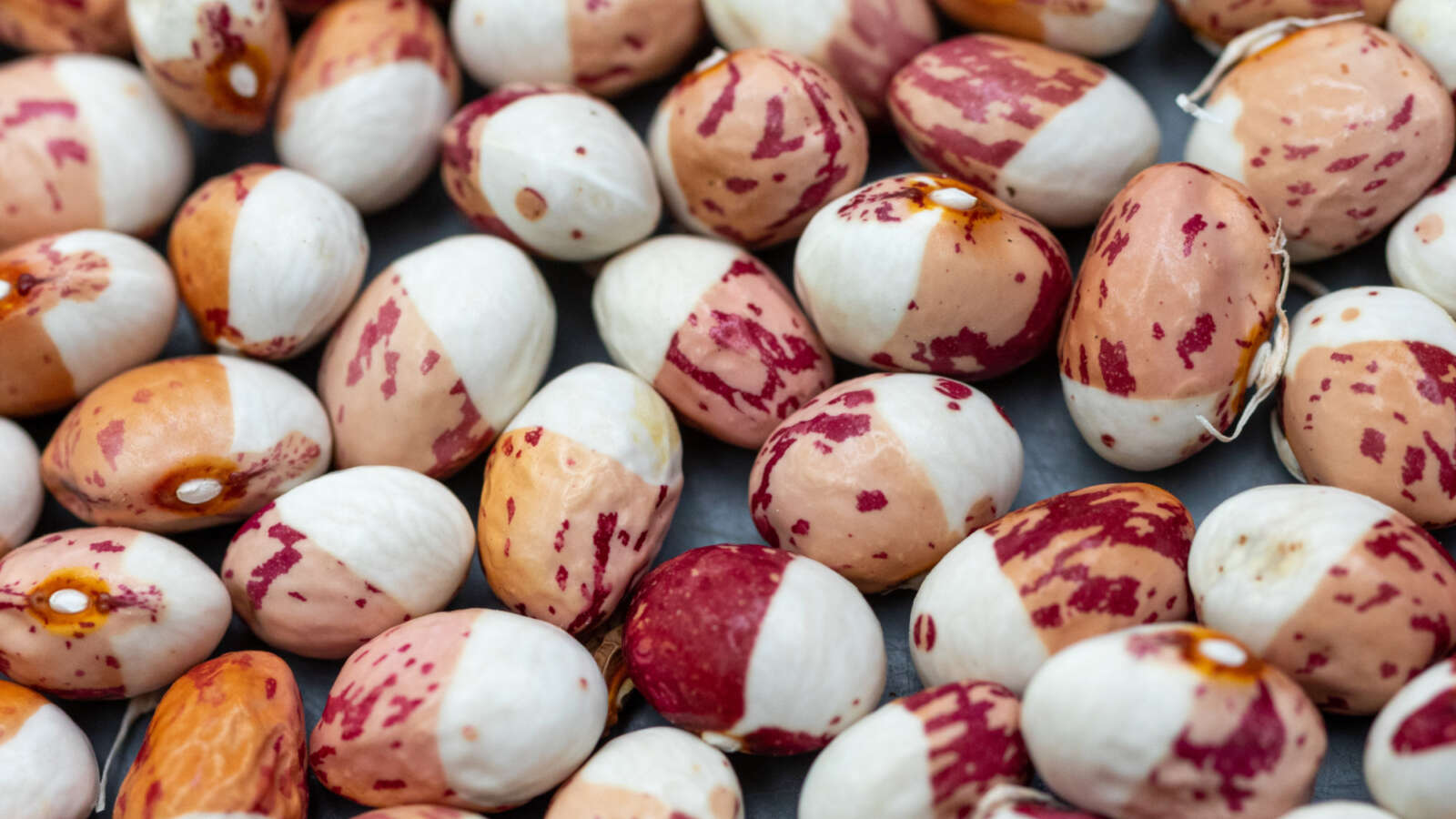The Heritage Seed Library
Save a Seed: Become a Variety Champion today
Biodiversity decline isn't just about wildlife. Our food heritage is also under threat. Countless open-pollinated vegetable varieties, once a staple in family gardens, have been lost in our lifetime.
This decline in cultivated biodiversity represents a loss of genetic resource and rich local history.
What's more, fewer varieties mean a more fragile food system, vulnerable to crop failures.
The Heritage Seed Library exists to protect against this.
Since 1975, the Heritage Seed Library has secured the future of over 800 vegetable varieties with unique stories and exquisite taste.
Varieties like Marianna's Peace tomato, named after a young Czechoslovakian farmer’s daughter who escaped captivity during World War Two and was given seeds of this variety by her father.
Variety Champions help us nurture these forgotten treasures, and allow us to secure more varieties.
We need the support of Variety Champions to continue and expand our work.
We have 800 varieties in the Heritage Seed Library. Each variety must be grown periodically to maintain the viability of the seed we hold.
We also have more than 100 varieties waiting to be assessed for inclusion in the collection. The longer they're left waiting, the slimmer our chance of saving them for future growers.
Each year we share over 30,000 packets of seed from the collection, putting the varieties back in veg plots where they belong.
This work is entirely funded by charitable donations and grants.
Can you support us with a donation of £25 a month to become a Variety Champion?
As a thank you, you'll receive:
- Invitation to an exclusive event at the Heritage Seed Library's HQ near Coventry.
- A pack of heritage seeds available only to Champions.
- Regular updates on the Heritage Seed Library, including information on our plans for the coming year.
- Welcome pack including a packet of seeds and details about the variety you’re supporting.
How to support us
Browse our varieties, set up your regular donation and we’ll be in touch to take your chosen variety.
By sponsoring our preservation efforts, you're not just supporting a crop; you're helping to preserve a piece of history. Your contribution will ensure that future generations can enjoy the unique flavour and cultural significance of varieties like Marianna's Peace tomato, or Major Cook's Bean.
If you'd prefer to speak to someone about supporting this work, please email us or call 024 7630 8210.
“The work of the HSL over the years has been heroic ... And growing the varieties at home, nurturing them, enjoying them - that’s the way they have been kept alive. So three cheers for their work!”
FAQs
-
Most varieties are too rare for us to be able to spare seed. In some case we have the last known remaining handful, stored for safekeeping in our cold store with a small back-up at the Horticulture Research International department at Warwick University. When it comes time to grow out your variety to replenish the seed stock it may become available via the annual seed list shared with HSL members.
-
Your donation will support all the varieties within the Heritage Seed Library, including those not yet put through the rigorous testing to assess their suitability for acceptance into the library.
-
Absolutely! We’re incredibly grateful for any donation you can spare. If the £25 a month to become a Variety Champion is more than you’d like to spend, you can give a one-off or regular donation of any amount. We also have a membership scheme starting at just £2.75. Visit the 'Support Us' area of our website for more information.
